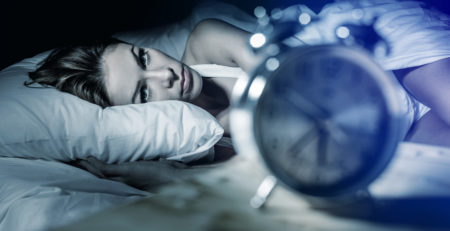Is Insomnia a Mental Disorder?
Insomnia is a sleep disorder that affects millions worldwide. Though it is not a stand-alone mental health condition, it is a symptom and exacerbator of many psychological issues.
The Effects of Insomnia
Insomnia can profoundly impact your quality of life and ability to function normally. Those suffering from chronic sleep disturbances may experience:
- Cognitive impairments, such as difficulty concentrating, memory problems and decreased problem-solving abilities.
- Emotional disturbances, including increased irritability, mood swings and vulnerability to stress.
- Physical health issues, like weakened immune function, weight gain and a higher risk of chronic diseases like hypertension and diabetes.
Insomnia and Mental Health
Insomnia is frequently a precursor and symptom of mental health disorders.
- Anxiety: Worry and fear can keep your mind active at night, making it difficult to fall asleep or causing middle-of-the-night awakenings.
- Depression: Many people with depression are frequently sleep-deprived.
- PTSD: Nightmares and night terrors associated with PTSD can significantly disturb sleep.
- Chronic stress: High stress levels can lead to hyperarousal, a state of increased psychological and physiological tension that interferes with sleep.
Medication-Free Ways to Manage Insomnia
Doctors often prescribe medications for insomnia, but if you worry about potential side effects, try these non-pharmacological strategies to establish a healthier sleep cycle.
- Cognitive behavioral therapy for insomnia: This specialized form of therapy is the gold standard for treating insomnia. CBT-I involves identifying and changing beliefs that affect your ability to sleep. It also includes strategies like sleep restriction and relaxation techniques.
- Maintain a regular sleep schedule: Going to bed and waking up at the same time every day regulates your body’s internal clock.
- Create a sleep-inducing environment: Make your bedroom a cool, quiet and dark haven. Invest in a comfortable mattress and pillows and consider using blackout curtains, essential oils or a white noise machine for deep, restorative sleep.
- Limit exposure to screens before bed: The blue light emitted by phones, tablets and computers can interfere with melatonin production, making it harder to fall asleep. Use a blue light filter or go device-free for at least an hour before bedtime.
- Mindfulness and relaxation techniques: Practices such as meditation, deep breathing exercises and progressive muscle relaxation can reduce stress and anxiety at bedtime.
- Physical activity: Regular physical activity can help you fall asleep faster and enjoy deeper sleep. However, do not work out too close to your set bedtime.
- Dietary adjustments: Avoid large meals, caffeine and alcohol before bedtime, as they can disrupt sleep.
Find Your Way to Freedom
Insomnia’s association with various mental health conditions makes it critical to address in a specialized program. Serene Behavioral Health provides holistic programming that includes support for sleep-related issues, recognizing their profound impact on overall health and well-being. Our admissions team is here to answer your questions, verify your insurance coverage and explain what to expect with our levels of care. Connect with us today to learn more.
















